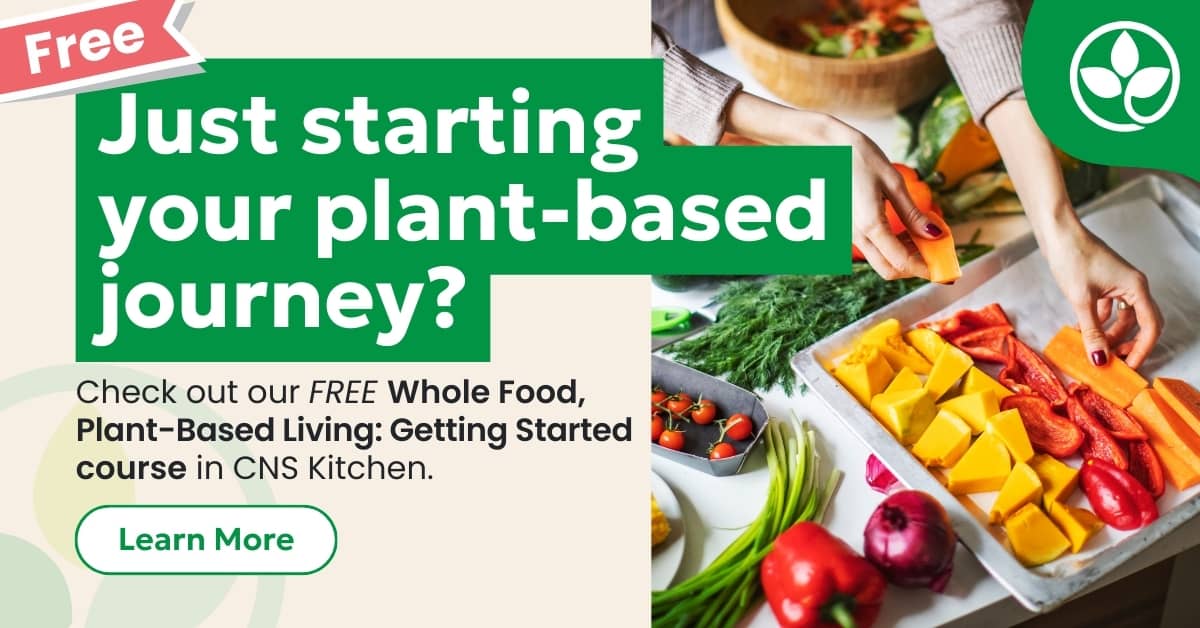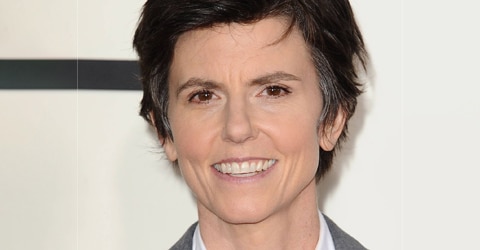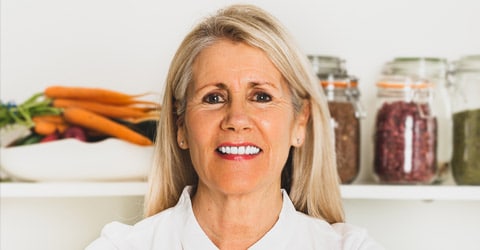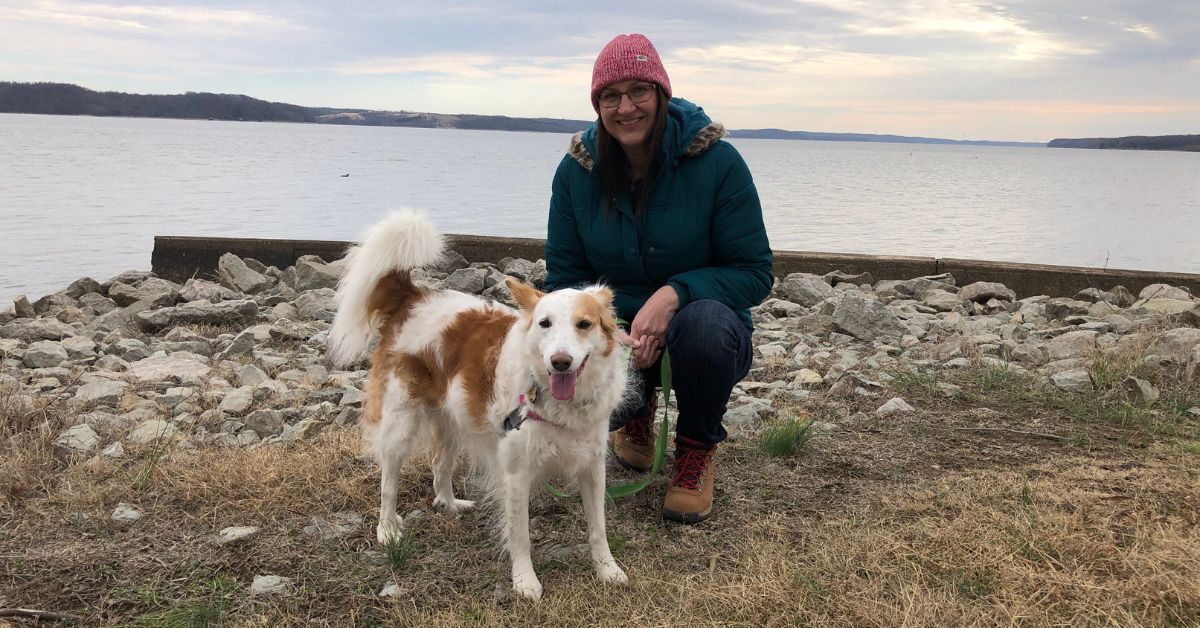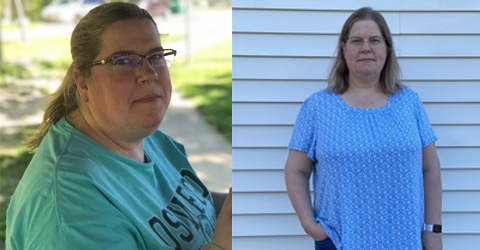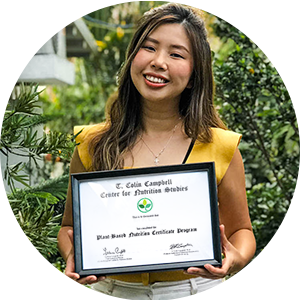
Students of the Plant-Based Nutrition Certificate demonstrate not only a wide range of backgrounds, but also an exciting breadth of potential. Their numerous and unique post-certificate achievements speak for themselves. We are proud to share their journeys and recognize the growth they exemplify, both as individuals and as reflections of a larger community.
Congratulations to Tig Notaro on being chosen as our Student of the Month.
My Whole Food, Plant-Based Journey
Over the years, there were several stretches of time during which I was drawn to the idea of being healthier and “eating right.” I’d have a salad and think to myself, this is delicious, I should eat more salad. So, I would eat more salad, and that would last for a few weeks. But like almost every other American, I would soon end up eating burgers again. Why? Because my desire to eat better was never grounded in anything substantial. I always had the vague idea that I needed to eat better, and that once I did, everything would click into place, but I didn’t even know what “eating right” was supposed to look like. Sure—I could commit to having more salad, but what did that even mean? Why should I have more salad? Fundamentally, I had no real knowledge about nutrients or the healing benefits of certain foods. I seemed slated to float in and out of these patterned behaviors: wanting to eat better, trying to eat better, and eventually reverting.
It wasn’t until I simultaneously contracted pneumonia, the intestinal disease C. diff, and invasive cancer that I was able to really focus my attention and passion on eating better. I was recovering from these three deadly illnesses when I started to really understand and respect just how toxic the wrong foods can be, and just how medicinal the right foods can be. I was also beginning to search for solutions to my ongoing pain and illness beyond conventional Western medicine. Not because I was anti-doctor or anti-Western medicine (I’ve certainly needed both, at times), but because I was struggling despite that medicine. I had seen friends benefit from a shift to a plant-based diet, including some who were recovering from cancer, and I’d reached a point of being really tired of my daily pain and suffering. I figured I’d dip my foot into eating plant-based. Worst case scenario, I told myself, I’ll eat healthily for a few weeks.
Within the first week of my plant-based diet, there was a noticeable alleviation of my pain and inflammation. I also felt more in touch with my body. My head was clearer, and I felt less weighed down. The switch was easy for me because it was grounded in experience: just as I could feel the very sudden loss of health and wellbeing, I could feel a noticeable shift toward better health and wellbeing soon after I changed my diet. I wasn’t just reading or hearing about the life-and-death stakes of dietary choice, I was feeling it.
Within that first week, I called my wife, Stephanie, and told her I’d been eating plant-based while on tour and that I felt confident it was helping me and made sense for my healing process. She’d been a vegetarian since she was a teenager, and she immediately said she’d love to do it as well. We made the decision to also introduce our one-year-old children to a plant-based diet, and we’ve all been that way ever since.
Why I Enrolled in the Plant-Based Nutrition Certificate Program
During the downtime of the pandemic, I had my first real time off from stand-up comedy, and it allowed me to fantasize about things I wouldn’t ordinarily think I could do. One day during lockdown, I was reading a book about nutrition and turned to Stephanie and said, “I wonder what it would take for me to get some sort of certification in this.”
By this point, I’d been eating plant-based for years and had been feeling so much better. I found myself wanting to talk to others about my diet, but I didn’t want to come across like I was swept up in some fad. I wanted to have specific knowledge about why I was feeling better. I also wanted to help others transition to a plant-based diet, but I felt I needed to make sure I had the correct information to offer. Instead of generically saying, “I feel good, and you should too,” I wanted to say, “I feel good, and here’s why.”
I had discovered T. Colin Campbell’s articles and listened to him in interviews, and I found nothing faddish about him. His research and knowledge were very compelling, so I enrolled in the Plant-Based Nutrition Certificate program. At first, my goal was simply to educate myself, but I came to realize that I wanted to do something bigger with the certificate. I wanted to make these discussions I have about my plant-based diet bigger and more real than just with friends, family, neighbors, and fellow comedians. After witnessing numerous people who made a change toward a plant-based diet and saw positive results from their condition, or a complete reversal of their condition, such as I experienced, I started to feel compelled to help people on a larger, more official level. Hearing so many people’s concerns or complaints about their health and wellbeing, and knowing that there was a direct path to potentially fixing or easing these health challenges, I felt a responsibility to do something.

Armed with the knowledge I gained from the Plant-Based Nutrition Certificate program and with my continual research, I’m beginning to take real steps toward putting myself out there—to guide others who are trying to become plant-based, and to support those who are trying to maintain a plant-based diet. As of now, Firmly Planted with Tig Notaro will consist of live or live-streaming events (maybe consulting and/or podcasting down the road) for those wanting to learn and discuss how to successfully become plant-based, as well as for those who are already plant-based and want to be part of a larger community and discussion. Selfishly, I’m also doing this to engage more fully in my passion for plant-based living and eating.
My Advice for Beginners
It’s very important to understand what draws you to a plant-based diet. Find and connect to a firm belief that this is the diet for you. There are various reasons why it might be. Is it animal rights? Your health? The health of your family? The environment? If you aren’t passionate or grounded, nothing will keep you rooted here.
Why I Recommend the Plant-Based Nutrition Certificate Program
Earning my Plant-Based Nutrition Certificate gave me a much broader understanding of my diet. That knowledge, in turn, keeps me more connected to the way I eat and live. The program’s information was streamlined and easy to follow, and I appreciated Dr. Campbell’s straightforward, matter-of-fact manner of sharing his knowledge. As someone with a very unpredictable schedule, it was great to be able to go at my own pace. Finishing the program and having a sense of completion in an area I’m passionate about is also truly a great feeling.
You Might Also Like
Copyright 2024 Center for Nutrition Studies. All rights reserved.
Earn Your Plant-Based Nutrition Certificate
Join over 20,000 students who have improved their health, learned new skills, and even inspired career changes.
Program Overview
- 23,000+ students
- 100% online, learn at your own pace
- No prerequisites
- Continuing education credits
